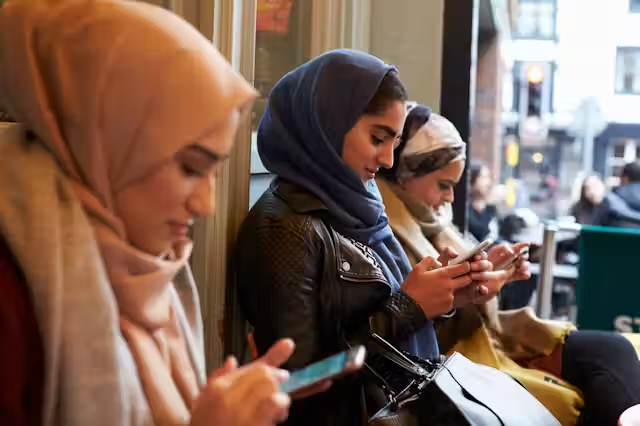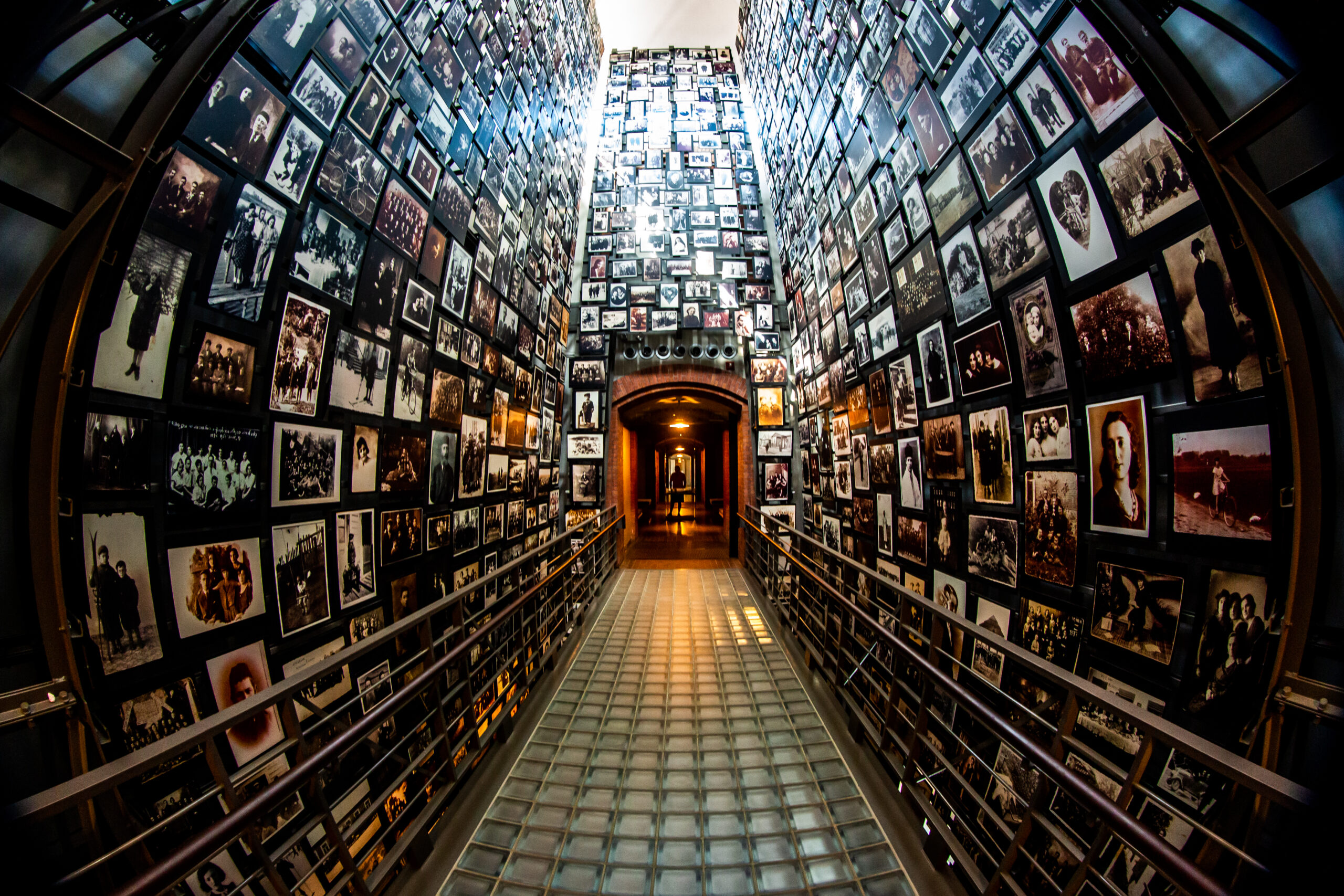
Abdullah Mansoor
We, the Muslims, often wonder about how the Jews made so much progress. And then we reply to our question in a roundabout way: America is with them, the media is theirs, the world is their agent. We are the poor and oppressed, victims of conspiracies, admittedly innocent.
Let us assume that the world is standing behind Jews, but can any community reach such heights only based on conspiracies?
Jews are a fraction of the world's population - a total of 1.5 crore. But their presence in the list of Nobel Prize winners is enormous. They have left their mark in every field: science, economics, medicine, and literature. Einstein, Freud, Salk, and others.
Do you think that all this is also part of some conspiracy? Did they reject every new thing by calling it “haram”? Did they call the education of girls a conspiracy? Did they create madrasas instead of research centres and centers of debates instead of laboratories?

Jewish women in a happy mood
No, they made education a weapon. They had faced persecution for centuries in Europe; they were thrown into gas chambers by Hitler, destroyed by different forces, from the Crusades to the Holocaust. Despite this, they did not rake up complaints. They picked up books. They knew that asking questions is not a vice, but a duty. It was not that Jews were born with a silver spoon in their mouth.
In medieval Europe, the Jewish community was held responsible for the death of Jesus Christ, leading to deep religious and social prejudice against them. As Christians came to power, strict laws were enacted against them.
In medieval Europe, they were pushed out of cities into ghettos, kept away from agriculture, trade, and respectable jobs. At that time, they excelled in money lending and handicrafts.
As accepting interest was a sin for Christians, money lending was the only job left for the Jews. As a result, people considered them cunning, greedy, and money-minded. Christians often went to Jewish settlements to seek or repay loans, which increased tension and mistrust between the two.

Muslim woman
At times, Jewish ghettos faced pogroms—homes burned, people killed, and property looted. This was done to escape debt or due to religious hatred. Such acts of violence were common in Europe, especially during the Crusades, the Black Death, and other crises.
They were excluded from mainstream occupations because of the guild system, but they began to open doors for themselves in fields such as goldsmithing, tailoring, engineering, and science. When society closed doors on them, they learned to get light from windows. This was a period when the world was steeped in superstitions, and the Jewish community slowly began to tread the path of logic and experimentation.
With the advent of civil rights after the French Revolution, France became the first country to grant equality to Jews. Britain and Germany followed. However, social discrimination did not end; at least the paths opened.
This was the time when Haskalah - the Jewish Enlightenment - began. They read not just prayers but also science and philosophy in books. An interesting example: Baruch Spinoza was a great Jewish philosopher in the 17th century. He questioned some aspects of his religion. He was ostracized.

Holocaust Museum
Later, Spinoza became a symbol of modern thinking and critical conscience. The Jewish society learned with time that if you kill questions, thinking will also die.
Today, the same Jewish community offers research funds and awards in the name of Spinoza and admits to its mistake.
Let us ask another important question. Why could scientific thinking not develop in Muslim society?
Initially, Muslim society made progress in science, mathematics, medicine, astronomy, and philosophy. Baghdad's 'Baitul Hikma' (House of Knowledge) was the center of global scholarship. However, after the 13th century, the rot set in.
A major reason was the change in the thinking of Muslims. They believed in fate and destiny. The 'Ashari' ideology has it that everything happening in the world is directed by the will of Allah. Man has no role in it. This thinking weakened the scientific understanding of cause and effect. If Allah is doing everything, then people take less interest in the laws of nature and scientific research. This leads to a decline in curiosity, imagination, and exploration.
In education, most of the focus was on religious education, and subjects like science and mathematics took a back seat. Due to this, scientific thinking and reasoning power could not develop in children. Later, as science and technology were developing in Europe, the level of education in Muslim societies was constantly falling; they lagged in scientific thinking.
In Muslim countries, a nexus between the monarchy and religious leaders came into being, and it did not allow the freedom to think openly and adopt new ideas. When a society is not free to ask questions, experiment, and try new ideas, then science has no place there.
Asking questions was considered an act of blasphemy. If a child asks, "Hazrat Khadija was involved in business, then why are our sisters prevented from going to the office?" - the answer is either anger or a fatwa.
Even today, in small towns, a girl's desire to go to college leads to a ruckus in the house. If she takes up a job in a bank, Islam is in danger. Interest is forbidden. In Muslim society, the thinking about education is that the world is a test of human capacity.

A Jewish woman praying
The real destination is the afterlife, hence the distance from traditional education, religious values, and science and technology. Doubts are cast on mobile, internet, and new technology. I remember till the 90s-2000s, the Muslim community did not install televisions in their homes.
On the other hand, education in Jewish society does not mean mere rote learning, but it's an art of thinking. Logic, experiments, and modern science are part of the schools. A child in Israel is making a project on cybersecurity and robotics, and a Muslim child of the same age in our country is looking for a 'digital rosary'.
Jews believe that children are the capital of the future, and in our society, they are thrown into responsibilities through early marriage. Here, saying “send daughters abroad and educate them” is considered a Jewish conspiracy.
When it comes to fixing the marriage age at 18 years, there is a hue and cry of “interference in Shariat” as is happening in Pakistan right now. Secularism has become an abuse in our society. The world is at quantum computing and genetic engineering, and we are still discussing whether mobile apps are halal; and whether mobile phones should be given to girls.
Muslims often speak of boycotting Israel. But boycotting is effective only when you have a choice. You can boycott their technology, medicines, and software only when you have your laboratory, research center, and university. We can't boycott what we can't build. Otherwise, it is like a person with empty pockets saying, "I will not go to Ambani's mall."
How many universities have we built in the last 50 years that are discussed in the New York Times or Science Journal? Any madrasa where a child studies both Fiqh and Physics? We have built mosques, which is a good thing, but it would have been better if there were a science laboratory attached to them.
Muslims were late in adopting the Industrial Revolution and the scientific discoveries of the Western world. When the Europeans were riding the train of science, the Muslim community was sitting on its old mule and thinking, "We too once owned an Arabian horse." When the printing machine came, they were afraid of adopting it, lest the Quran be printed, its purity would diminish. Forget about spreading knowledge, even printing books became a crime.
Reform does not mean abandoning religion, but understanding it better. Allah has given us intelligence and the power to think. Is it gratitude for not using it?

Jewish Rabbi performing a religious ritual
We often cry about being Pasmandas, but who is responsible for this?
Is it just America, Israel, or the Jews? Is it our laziness, closed thinking, or habit of dismissing everything as 'fitna'? From a religious angle, Islam gives importance to knowledge, but in practice, religious institutions and society have not always promoted scientific thinking.
Many times, religious beliefs and traditions have become an obstacle in the path of science. If we want our daughters to go to school, our children to work in labs, and scientific consciousness to emerge from mosques along with the recitation of the Quran, then the change will have to start. Not with slogans, but with options. Not by panicking, but by thinking and by creating solutions in place of every opposition.
Now, talking about the Pasmanda community—from the tea shop in my neighbourhood to the “jihadi sword” emoji on Facebook, the same old formula works everywhere—turn the injury of your community into the “wound of the ummat”.
ALSO READ: Khursheed Ahmad's mission of making Patna cultural and literary hub
If Syed sahab's son does not get a seat in college, then "Islam is in danger"; if Sheikh sahab's contract is snatched, then "Muslims are being oppressed". And when a Pasmanda asks, "When will we get a leader?", then immediately a fatwa is issued, "Don't spread violence, it is time for unity".
The author is a Pasmanda activist
